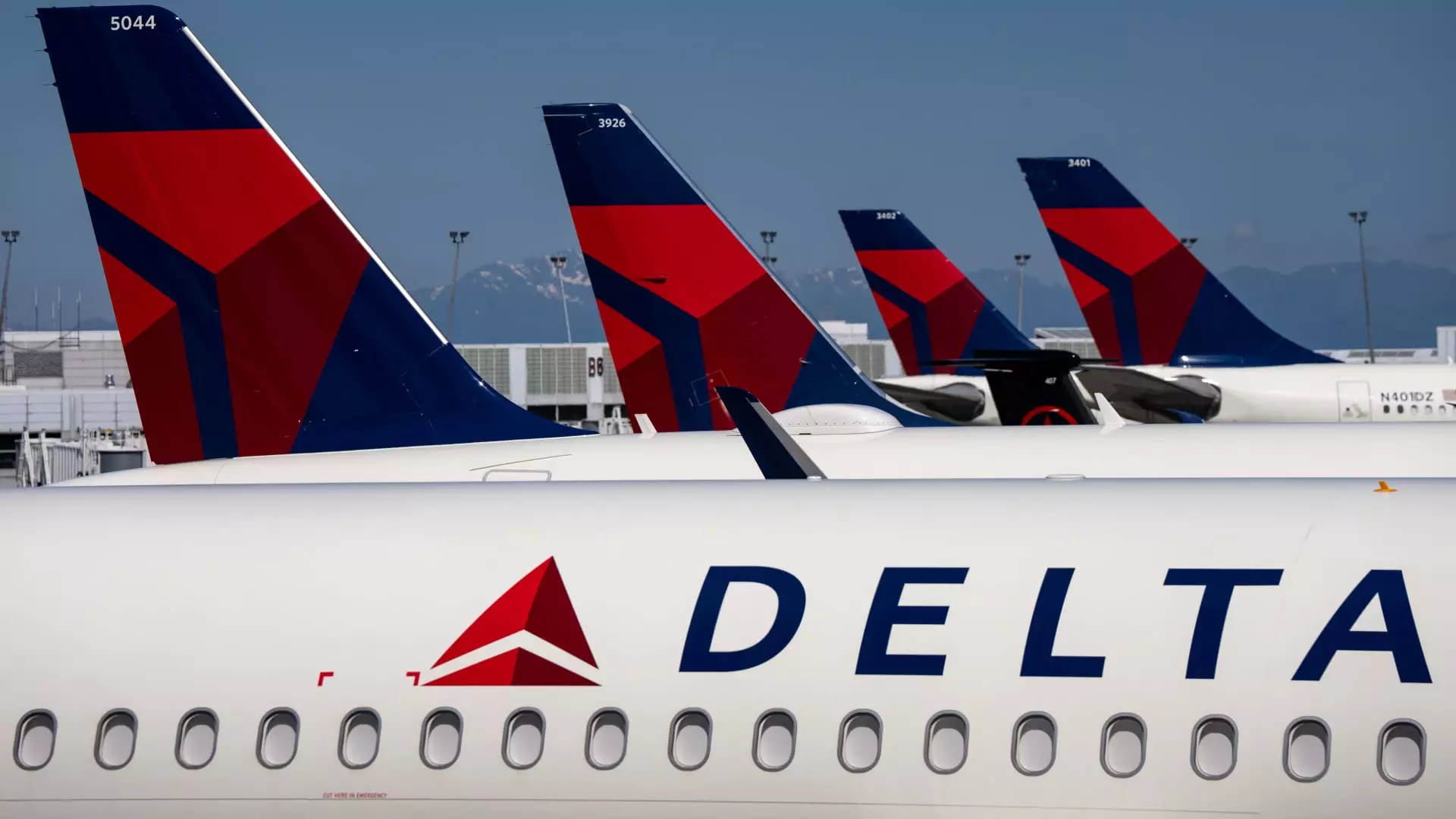The disappointing performance of Delta Airlines in the current fiscal climate underscores a larger trend that cannot be overlooked. CEO Ed Bastian’s recent admission that the airline will not be expanding its flight capacity in the latter half of the year should serve as a wake-up call. This drastic shift is primarily attributed to lagging customer bookings linked to the unstable economic environment fostered by President Trump’s controversial trade policies. It’s not just an anomaly; it symbolizes a larger concern about consumer confidence and corporate spending habits, sentiments echoing throughout corporate America.
Bastian’s candid commentary on the airline’s revenue forecasts—indicating potential declines of up to 2%—has sent ripples through Wall Street. Beyond mere statistics, this marks a pivotal moment for a company that once prided itself on its resilience and optimistic outlook. The figures paint a stark reality: while earnings forecasts are projected to fall short of analyst estimates, Delta’s anticipated performance carries with it a foreboding sense of uncertainty, particularly as the broader market recalibrates its expectations.
The Ripple Effects of Trade Policies
Trump’s trade stance has continuously influenced American businesses across various sectors, and the airline industry is no exception. Bastian described the administration’s approach as “the wrong approach,” illustrating how these policies induce consumer hesitation. As corporations reevaluate their travel budgets in response to soaring tariffs and economic unpredictability, the fallout is palpable. The notion that corporate travel will return to its previous levels seems increasingly optimistic.
The data indicates that while Delta began the year with robust demand—an approximate growth of 10%—the momentum tapered drastically by mid-February. As companies are mum on travel commitments, Delta’s efforts to prepare for increased capacity are now defunct, representing what could be a significant retreat for a leading airline.
Unprecedented Uncertainty in Earnings Estimates
There has been a palpable tightening of the belt across financial forecasts for major airlines, with Delta taking center stage as the first of its peers to report. Analysts have been forced to cut their earnings estimates, reflecting a cautious stance. The proclamation that “we expect this to be the first of many capacity reduction announcements” from various airlines is a sign of the times, indicating not just Delta’s woes but foreshadowing challenges within the entire sector.
Bastian’s remarks on travel demand reveal an underlying current of instability: the anticipated boom in leisure and corporate travel is falling flat as the reality of economic uncertainty ensnares the market. For the first quarter of 2025 alone, Delta’s results were only marginally better than expectations, showcasing growth that barely kept pace with prior years. When juxtaposed against the vivid backdrop of what should have been a flourishing travel season, such figures are alarming.
The Future of Airline Profitability
Delving into Delta’s euphoric early projections for 2025, where Bastian envisioned a record-breaking financial year, it’s now evident that optimism must be tempered. The inability to enhance capacity in a supposedly growing sector reveals a troubling trajectory. The airline’s commitment to preserving profit margins amid slowing demand is still laudable but raises questions about future viability.
According to analysts at TD Cowen, a comprehensive strategy that caters to a deleveraging environment becomes imperative. While Delta insists on protecting cash flows, a stagnant flight capacity signals that the days of easy growth may be behind us. This isn’t merely about Delta; it’s a reflection of a collective industry facing the crosshairs of mounting economic pressures.
In this climate of declining confidence, the struggle for Delta Airlines is emblematic of broader economic issues rather than individual corporate failings. America’s largest carriers are more than likely bracing for a bumpy ride ahead, with their futures hanging in the balance. Whether the financial forecasts evolve positively remains to be seen, yet the stark truth is: volatility may well become the norm in an unpredictable global landscape. The stakes are high, and corporate strategies must adapt swiftly, lest they lose ground in an already faltering marketplace.

